Acumen, 2013, ISBN: 978-1-84465-649-3
Dr. Marie Cartier
Price $74.14
[Originally published in Sinister Wisdom, July 2014]
“The Catacomb Culture of Gay and Lesbian Civil Rights History”
Baby You Are My Religion is a fascinating book in which Dr. Marie Cartier, a historian and theologian, argues her case that the pre-Stonewall lesbian bars, especially the 1950’s bars, constituted a form of sacred space. She makes repeated comparisons between the bars of this era and the catacombs in Rome, where early Christians met in secret, underground venues, practicing a form of civil disobedience necessitated by their taboo beliefs and rituals. This comparison appears less hyperbolic in light of the stories of the women interviewed for the book.
There was not one other place that I could fit. That’s why I went back after the police raped me. Over and over they raped me and over and over I went back. There was not one other place that I existed; or that my gay friends, the queens, could exist. It took all the courage I had to walk as a butch from the car to the bar…(p.14)
For bar culture women then, I believe the gay women’s bar was that proverbial mountaintop—the place where they began the search that would lead to self-definition. (p.195)
This is a radical and significant reframing of an era of lesbian history that was rejected in the 1970’s lesbian-feminist construction of lesbianism as “the rage of all women condensed to an explosion,” rather than the “persistent desire of butch-femme.” (P. 106) The masculinity valorized in the butch-femme relationships of bar culture was not welcome in lesbian-feminist communities, nor was it welcome in mainstream feminist organizations.
The reality, however, was that, in 1961, the national membership of the Daughters of Bilitis was 115, but lesbians by the tens of thousands were flocking to the bars.
I believe however that the missing historical link between the past and the 1970’s is the butch-femme couple, the true “point of connection” between the two. ( P. 115)
Throughout the book, Dr. Cartier practices “deviant historiography,” an intriguing double-vision approach to history that combines a contemporary perspective with a respectful deference to the historical realities of the population being considered… in this case, the women of the bars.
For the book, she interviewed ninety-three self-identified gay women who attended the bars between 1940 and 1975. Her book devotes a chapter to each decade, and also includes a chapter on the 1980’s.
Cartier examines how feminist theologians challenged the hierarchy of traditional theology, positing a “thealogy” rooted in experience as the source of insight into the Divine. But even this feminist thealogy was inaccessible to gay women in the mid-twentieth century. Only in the bars could they exist in relation to others as homosexuals, and not be cast as criminals, sinners, or mentally ill. And, as Cartier notes, the women’s spirituality movement was not welcoming of butch-femme.
Cartier creates her own word for the spiritual experience she discovers with her informants. The word is “theelogy:
A new word or house is needed to articulate what these women were doing for each other. I call this new word theelogy, in honor of the concept of friendship, and friendship’s ability to see the humanity, or the sacred, in each other and in our shared community members.(p. 190)
Baby You Are My Religion is packed with fascinating first-person narratives, a radical reframing of butch-femme history, and a fascinating contribution to evolving LGBT spiritual and religious history… but there is more than that. I am reminded of the words of African American author and activist Toni Cade Bambara:
I’m entering my forties with more simplistic criteria—anyone with a greater capacity for love than I is a valuable teacher. And when I look back on the body of book reviews I’ve produced in the past fifteen years, for all their socioideolitero brilliant somethingorother, the underlying standard always seemed to be—Does this author here genuinely love his/her community?
And in the case of Dr. Cartier, the answer is a resounding yes.
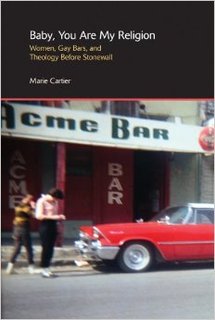
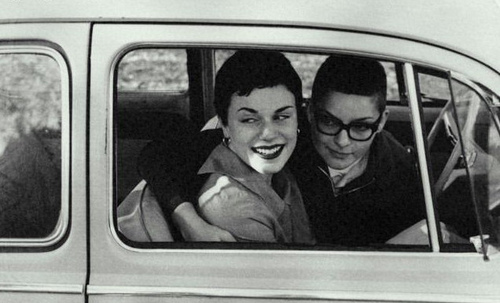
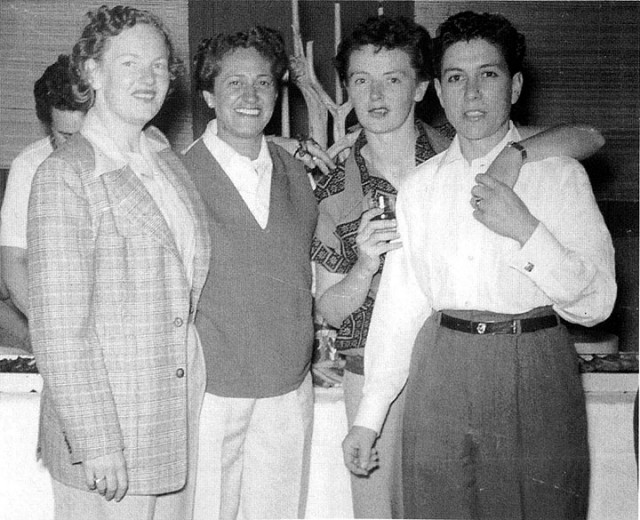
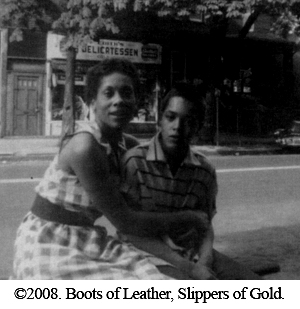
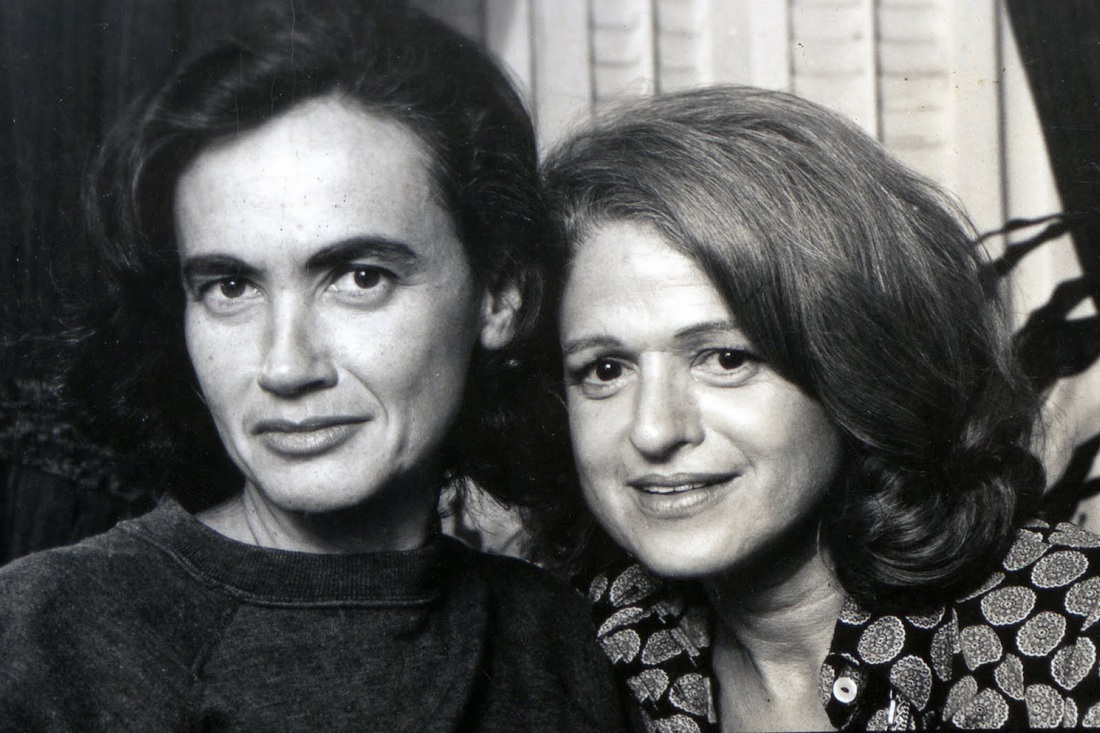


 RSS Feed
RSS Feed
